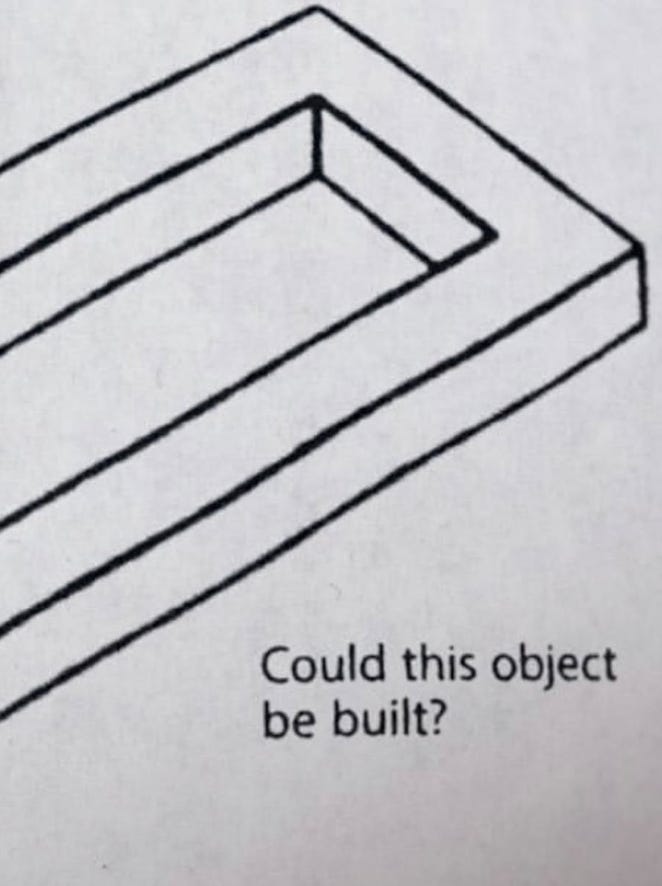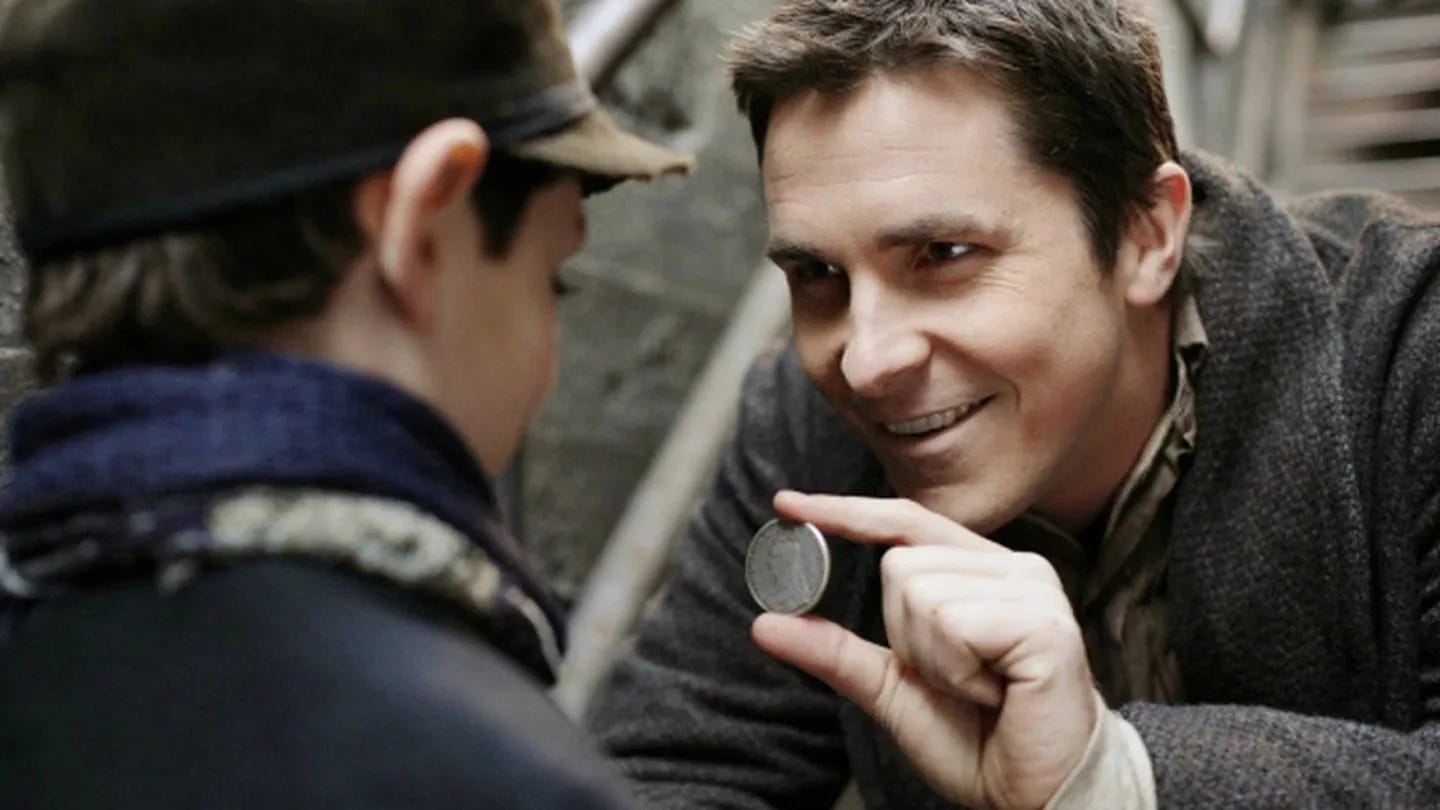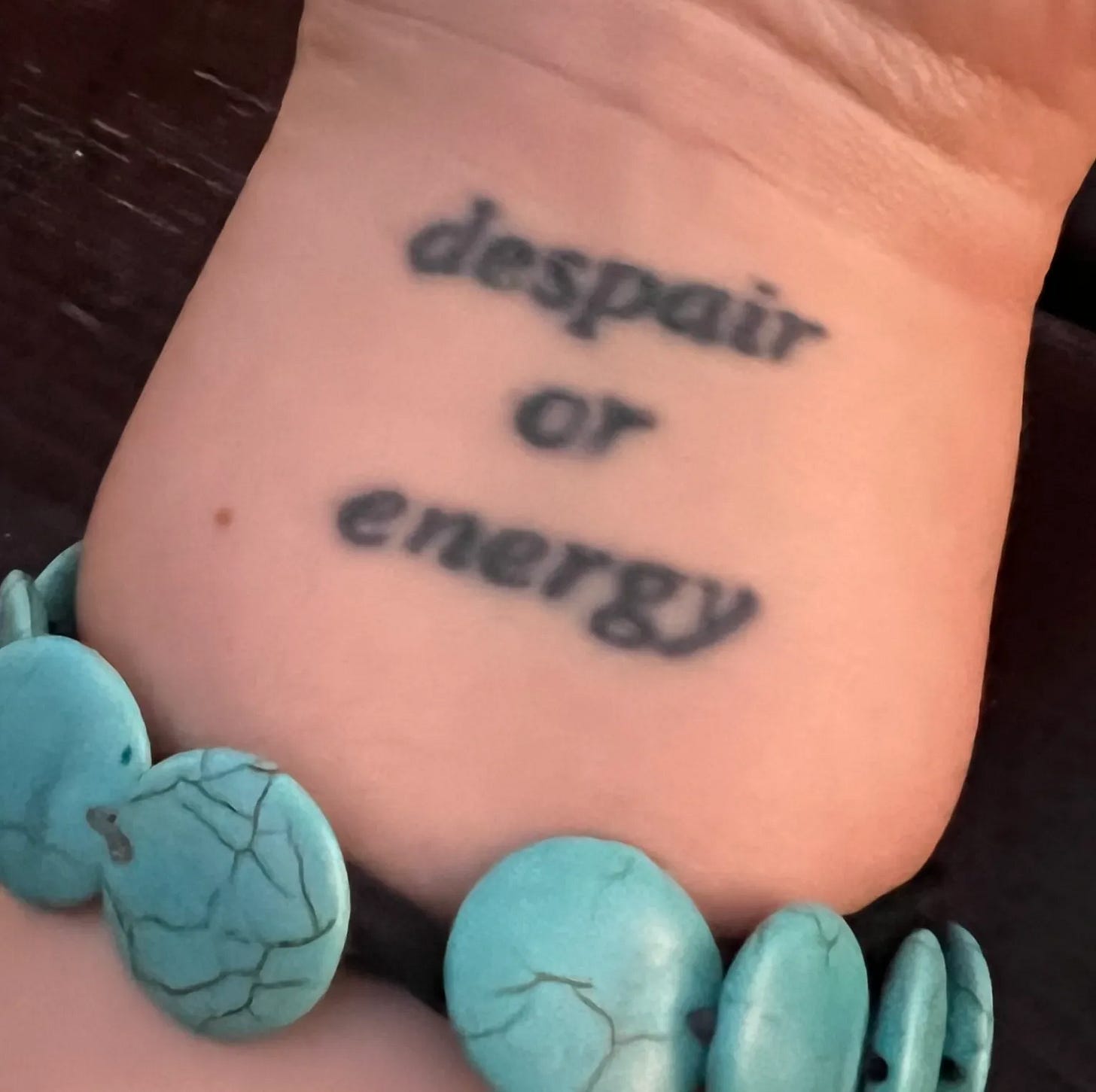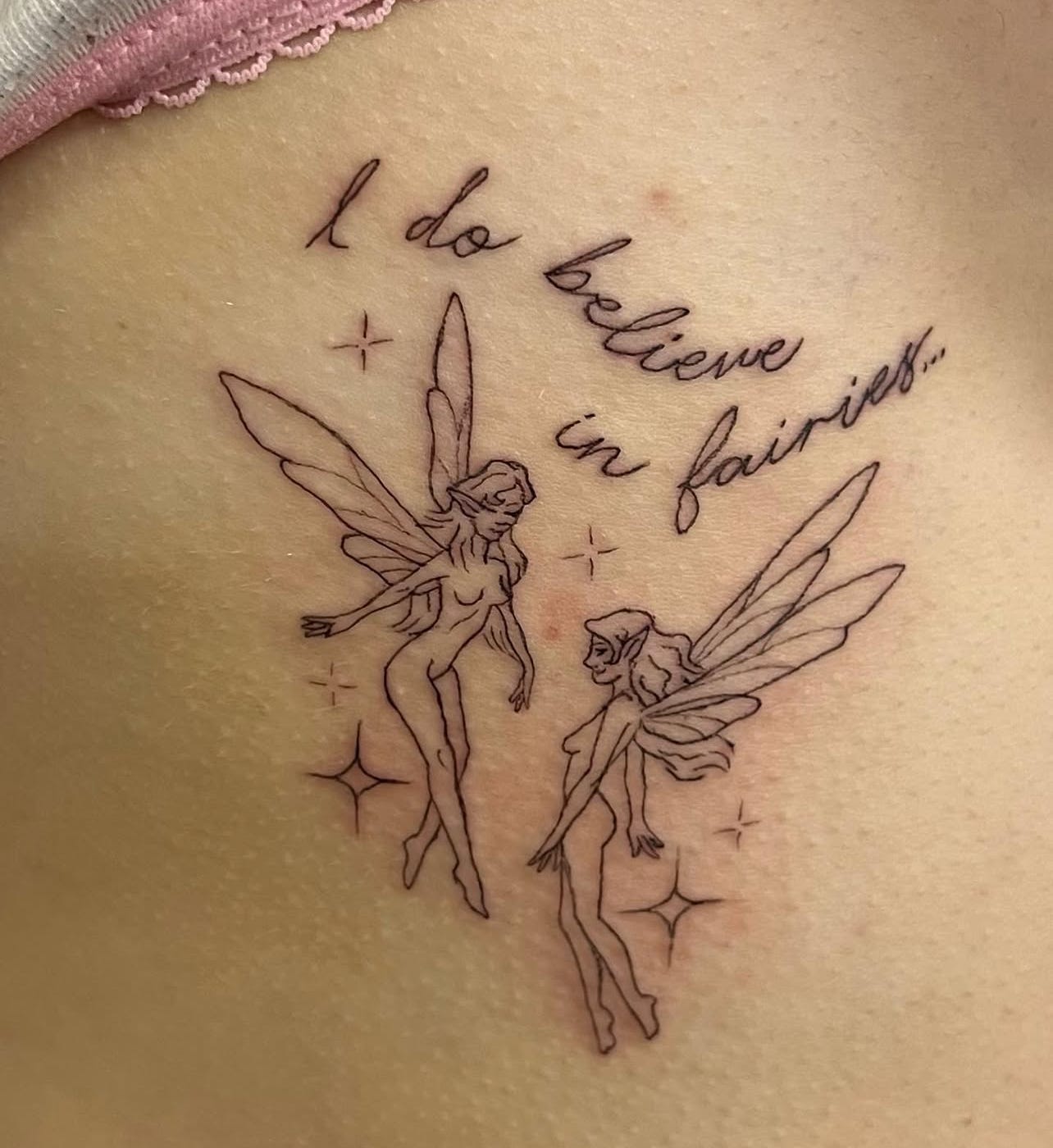‘skill issue’ is a useful meme
on agency and learned helplessness
At face value, ‘skill issue’ is a gaming meme typically used by 14 year old boys as a snarky, dismissive response. But internalised sincerely, ‘skill issue’ can become a life philosophy that reframes failure as a solvable problem. It implies that your current inability to do something isn’t an inherent character flaw, but just something you haven’t learned yet.
Learning how to enjoy life? Skill issue. Learning how to love? Skill issue. Finding what makes you come alive? Skill issue. Even the inability to identify a skill issue? You guessed it.
I think there’s a strange kind of hope buried in this frame. If something isn’t forbidden by the laws of physics, then what’s really stopping you, other than knowledge, practice or nerve?
Wonder in a Miserable World
I finally watched Christopher Nolan’s The Prestige with some friends last weekend. There’s a line by Robert Angier that stayed with me:
The audience knows the truth. The world is simple. It's miserable. Solid… solid all the way through. But if you could fool them, even for a second, then you can make them wonder.
Even in a rigid, disappointing world, it reminds the audience wonder is possible, allowing them to briefly forget their limitations and believe in something more.
This is what the “skill issue” meme gestures at, when taken seriously. Rather than delusion or optical illusion in the movie, it’s about opening the door to possibility and choosing to believe that different outcome exists, and that you might have the power to reach for it.
But what about The System?
Of course, not everything is a skill issue. Enter systemic factors: growing up in a violent or unstable household isn’t a skill issue. Being hit by a meteor, kidnapped by mutant cannibals, or living under an exploitative economic system? Also not skill issues.
Yet, we’re living through a cultural moment where almost everything is explained through systemic lenses. There’s a strain of discourse that suggests personal suffering, especially the inability to cope, is primarily political. If you’re struggling, the problem is capitalism, never you.
While there are absolutely supra-individual forces that constrain and shape us, this Gawker essay articulates the danger of taking that explanation too far:
When living “under capitalism” becomes a catch-all explanation for what you can’t manage…it assumes the nature of a complaint to an adjudicating authority. Since capitalism has impressed such impossible conditions on us, we can’t reasonably be expected to deal with it until they improve. But in fact there is no one to adjudicate between you and capital… There is no political program that will release you from the necessity of doing more than you should have to or feel capable of doing, in politics as in every other part of life…
If you think seriously about the good life and pursue it, you will probably fail in ways large and small. But an imperfect struggle to live well and love a world badly in need of repair is better than staying still because things are terrible, because you might look like a loser in the meritocratic game, because it’s easier.
This is your life. You do not have time to wait for the revolution to begin living it. You will always be able to find someone to give you permission not to live it. But no one is coming along to live it for you.
Systemic forces matter and are deeply intertwined with the widespread alienation of self we face. But so does what you do within their constraints. There’s something quietly corrosive about internalising the message that your paralysis is wholly externally imposed and that constrained choices aren’t real choices. Waiting for external permission to start living only deepens the stuckness. It turns the truth of real constraints into a full denial of choice, and that’s where we lose our grip on agency.
Meta-Beliefs That Reshape Reality
Beliefs shape perception, and perception shapes reality. If you truly believe you are capable of learning, your world starts to reconfigure itself around that belief. You start looking for footholds rather than dead ends. As Scott Alexander writes:
You’re not allowed to say “skill issue” to society-level problems, because some people won’t have the skill; that’s why they invented the word “systemic”. But your personal relationship to the meaning in your life is not a society-level problem. While Erik Hoel works on the systemic issue, you should be thinking of your own individual soul.
And Nadia adds:
If Gen X and Millennials grew up with a “digital divide,” perhaps Gen Z will face an “agentic divide”: those who believe they have the power to change their circumstances, versus those who do not…The opposite of agency is learned helplessness
Learned helplessness is the belief that you don’t get to steer, where no amount of effort will change the outcome, so why bother trying?
But if you believe that some things are within your reach - if you live as though your effort matters - then you start to see possibilities where before there were none. The world expands in relation to your willingness to engage with it.
Despair or Energy
I have a tattoo on my left wrist: despair or energy. It’s from a letter written by the poet John Keats in 1819, a year of immense personal suffering. His brother had recently died of tuberculosis. Keats himself was sick, deeply in debt, creatively blocked and heartbroken. Amidst all of this, he wrote:
I must choose between despair and energy - I choose the latter
What moves me about that line is he writes it with full weight of how tempting despair is, and chooses energy anyway, because it’s the only path forward.
I got the tattoo when I was 20, coming out of a season in which I felt like a shell of myself. That line became a mantra and insistence on forward motion.
That said, on my most unagentic days, the tattoo frustrates me profusely. It can feel like a cruel imperative. I stare at my wrist and it stares back, smug and unbending, because sometimes, it seems the choice slips through your fingers and despair chooses you.
Another related tattoo I have is from the Peter Pan movie of a line I always loved: “I do believe in fairies.” The idea is that fairies need to be believed in to stay alive. If you stop believing, they fade. If you chant and believe hard enough, they flicker back into being.
That idea that belief alter reality always moved me, because there are parts of us - hopes, capacities, possibilities - that only become real through belief. Sometimes you need to believe in the fairies for them to exist. Sometimes you need to believe in your own agency before you can act on it.
When you can’t believe, when that imaginative muscle fails, you feel the loss acutely. I once read a definition of depression that described it as an inability to imagine. That feels true, because it can feel like the collapse of the possible and an acute failure to conjure futures. You stop being able to picture a future that looks any different from the present, and if imagination is the engine of agency, then of course you feel paralysed.
Still, I return to this from a passage I read recently:
It only takes one night for your decades-long desire to cross over from your imagination into your memory, which tells you that all of this is at least possible. Maybe knowing that your joy is possible is what finally sets you free..Starting one new hobby is all it takes to remind myself that I’m capable of learning anything. The shift from zero to one is seismic in a comical way. A single spark of hope and I begin to feel the electricity flowing between my fingertips and I start thinking these hands can work miracles
It really does only take one good night - one conversation, one decision, one breath of agency.
Again, no belief system is absolute and not everything is a skill issue. But I’m learning that more things might be than I first assumed. Beliefs like this are like handles in the dark - they don’t make the terrain any less steep, but they give you something to hold onto. Whispering I do believe in fairies until the spark returns, the imagined becomes real and you remember that not everything is out of reach.
Maybe that’s the real “skill”: learning which beliefs give you strength and choosing to live like they’re true. Choosing to imagine better futures, especially when your mind tells you none exist. Because imagination, too, is a muscle. Even if it feels weak, even if you’ve forgotten how to use it, it can be retrained.
Reframing things as skills doesn’t need to completely flatten systemic complexities - it just invites you to wonder: what if I could learn this? What if I could get better? What if I’m not stuck forever?
The act of imagining something better is a first rebellion, a signal to your nervous system that you are still here, still alive, still capable of change, and maybe sometimes that’s all you need to start.






Also read https://celandine13.livejournal.com/33599.html: Errors vs. Bugs and the End of Stupidity.
"Once you start to think of mistakes as deterministic rather than random, as caused by "bugs" (incorrect understanding or incorrect procedures) rather than random inaccuracy, a curious thing happens.
You stop thinking of people as "stupid.""
I wouldn't be lying if i say this is one of the best essays I've read on this app. I loved how you connected a meme with an entire life philosophy and i also enjoyed the way you tied it with the movie “The Prestige”. Truly a great read!!